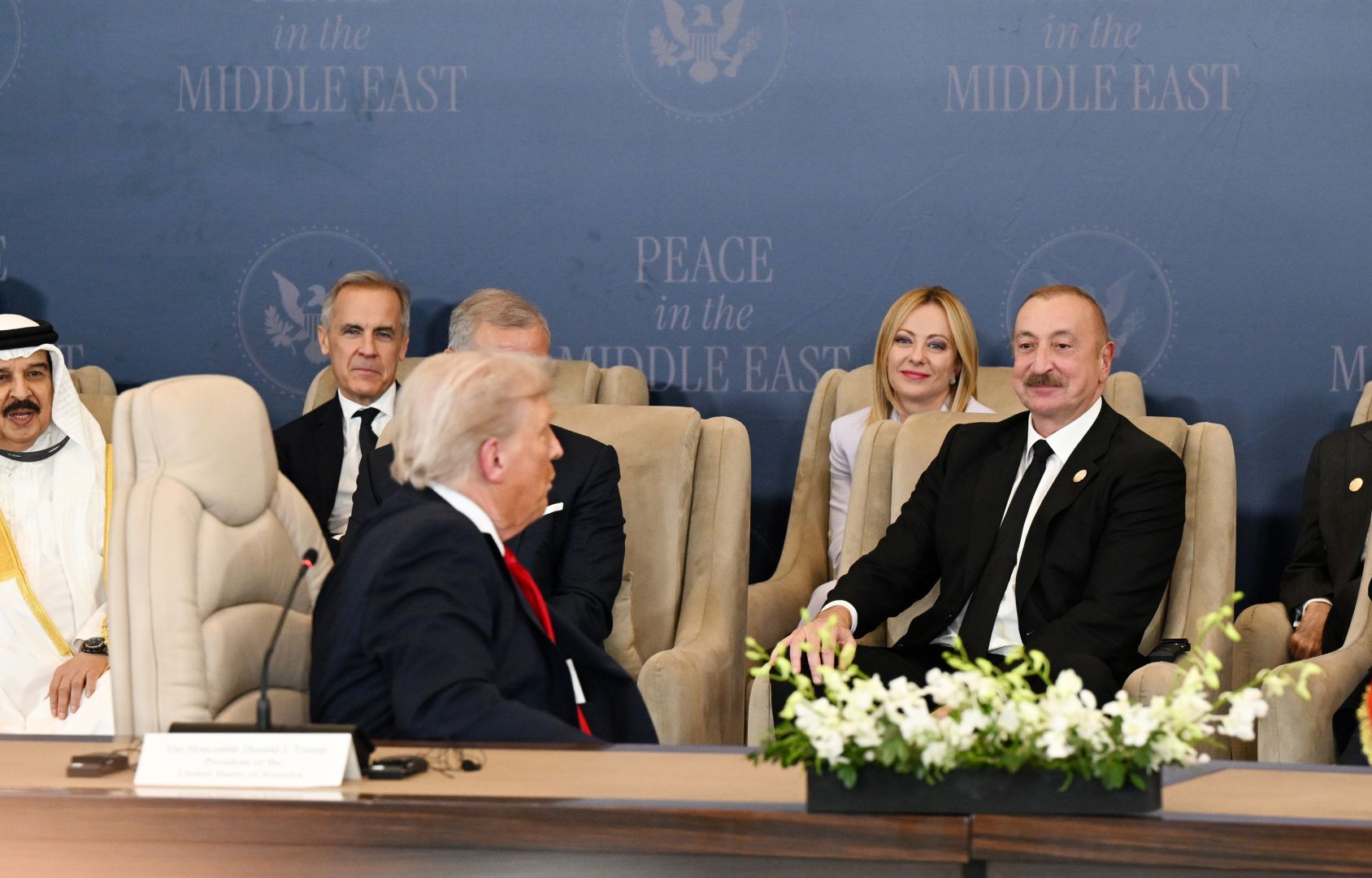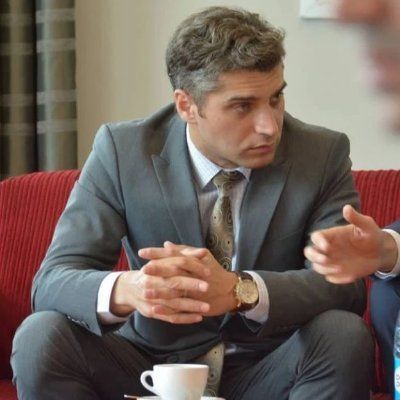Azerbaijan steps onto Middle East stage to bridge new frontiers of peace [ANALYSIS]
![Azerbaijan steps onto Middle East stage to bridge new frontiers of peace [ANALYSIS]](https://www.azernews.az/media/2025/10/16/1760373956960463760.jpg)
In a region long shaped by rivalry, ideology, and conflict, a new and unexpected voice of balance and diplomacy is emerging: that of Azerbaijan. With the signing of a historic ceasefire between Israel and Hamas in October 2025, the shifting architecture of peace in the Middle East has drawn in a mediator whose credibility is built not on size or power, but on experience, consistency, and wisdom. At the heart of this development stands President Ilham Aliyev, whose deft diplomatic manoeuvring and decades-long peacebuilding record in the South Caucasus have positioned Azerbaijan as a respected and trusted actor in one of the world’s most volatile arenas.
Between October 8 and 10, 2025, Israel and Hamas reached an agreement on the first phase of a peace plan proposed by US President Donald Trump. The negotiations, held in Egypt’s Sharm el-Sheikh and mediated by Qatar, Egypt, and Türkiye, resulted in a fragile but hopeful ceasefire. Humanitarian aid began flowing into Gaza for the first time in months, where prisoner exchanges were also agreed, and a multinational peace monitoring force, led by the United States and including contingents from Türkiye, Egypt, Qatar, and the UAE, was established to oversee compliance.
But beyond the visible headlines of hostages and withdrawals, the diplomatic choreography behind this achievement reflects a deeper truth: the world’s peace architecture is broadening, and new mediators are stepping forward. Among them, Azerbaijan is emerging not as a bystander, but as a bridge-builder, a state whose diplomacy is rooted in realism, trust, and an unshakeable belief in dialogue.
Besides, it was an experience, an experience that had a long journey from conflict resolution to peace diplomacy. Sharm el-Sheikh witnessed lessons from the South Caucasus that could end decades-long conflict.
Few leaders in the post-Soviet world have confronted the challenges of conflict management and reconciliation as directly and as consistently as President Ilham Aliyev. When he assumed office in 2003, Azerbaijan was a nation burdened by occupation, displacement, and trauma from decades of war. Two decades later, it stands as a model of post-conflict recovery, reconciliation, and strategic reintegration.
Under President Aliyev’s leadership, Azerbaijan successfully restored its territorial integrity through a combination of diplomacy and defence, and then pivoted swiftly toward peacebuilding. His insistence on a peace treaty with Armenia, founded on the principles of sovereignty and mutual recognition, demonstrated an approach guided not by revenge but by reconstruction. The Abu Dhabi talks between Baku and Yerevan, for instance, showcased his patient and pragmatic diplomacy, which was built on balance, mutual interest, and future-oriented cooperation.
It is this same approach that now lends President Aliyev credibility on the global stage. His ability to turn a post-war environment into a platform for regional cooperation, involving Türkiye, Georgia, Uzbekistan, and others, underscores his capacity to transform conflict into opportunity. This accumulated experience in mediation, reconstruction, and multilateral dialogue forms the foundation for Azerbaijan’s growing role in international peace efforts, including in the Middle East.
The Middle East’s complex conflicts often require mediators capable of talking to all sides, of course, a quality few possess. However, it can be confidently said that Azerbaijan does. As a secular state with a majority-Muslim population and strong partnerships with both the Islamic world and the West, Baku occupies a unique diplomatic space. President Aliyev’s government has cultivated trust in Washington and Brussels while maintaining deep solidarity with the Muslim world and strategic cooperation with Israel.
This nuanced diplomacy has been tested and proven. In the aftermath of the 2010 Mavi Marmara crisis, when relations between Türkiye and Israel were frozen, Azerbaijan quietly served as an informal channel of communication, maintaining economic ties with Israel while preserving its unwavering brotherhood with Türkiye. Years later, as Ankara and Tel Aviv restored full diplomatic relations, President Aliyev’s balanced approach was widely recognised by regional analysts as one of the stabilising factors that kept dialogue possible between two of Azerbaijan’s closest partners.
It is precisely this credibility, grounded in neutrality, pragmatism, and mutual respect, that now makes Baku an appealing partner in the emerging framework of Middle East diplomacy. The invitation extended to Azerbaijan to participate in the upcoming US-led “Middle East Peace Plan” summit is therefore not a coincidence. It is a recognition that, in a world divided by polarisation and distrust, Azerbaijan represents something increasingly rare: a trusted middle ground.

President Aliyev’s charisma and strategic vision
Observers across the region point to Ilham Aliyev’s charisma and shrewd understanding of international dynamics as key reasons for Azerbaijan’s diplomatic ascent. His leadership style blends strategic patience with bold execution. Whether engaging in quiet back-channel diplomacy or public international forums, Aliyev’s presence commands respect. His calm, measured rhetoric, emphasising mutual respect, sovereignty, and non-interference, resonates across both East and West.
In Cairo, during his recent visit coinciding with the Sharm el-Sheikh peace discussions, President Ilham Aliyev once again demonstrated this rare balance. Meeting Egyptian officials, he emphasised the importance of regional dialogue, religious coexistence, and shared prosperity, themes that mirror his vision for the South Caucasus as a space of cooperation rather than confrontation. His words carried weight precisely because they are backed by experience. Azerbaijan knows what it means to rebuild from conflict, to reintegrate communities, and to reconcile adversaries. Its foreign policy has long been anchored in pragmatism, but it is a pragmatism guided by values. Baku has managed to maintain constructive relations with all key Middle Eastern actors: Türkiye, Israel, Egypt, Qatar, Saudi Arabia, Iran, and the Gulf states. It supports Islamic solidarity, yet it also upholds international law and the principle of territorial integrity, a consistent stance that has earned it respect across diverse political landscapes.
Azerbaijan’s stance on Gaza, for instance, has been transparent and consistent. At the extraordinary summit of Arab and Islamic countries in Doha, Baku supported resolutions defending the Palestinian people and calling for a just peace. But it has done so without inflammatory rhetoric or populist posturing, instead projecting itself as a voice of reason and moderation.
This balance between principle and pragmatism, Islamic solidarity and international legitimacy, defines Baku’s diplomatic identity. It allows Azerbaijan to serve as a bridge, not only between East and West but also within the Muslim world itself.
For Washington, Azerbaijan’s involvement in the peace process brings a rare combination of legitimacy and trust. For Arab and Muslim partners, it demonstrates that cooperation with the West does not preclude loyalty to shared values. For Israel, it reaffirms the importance of pragmatic partnerships grounded in mutual benefit rather than ideology.
In this sense, Azerbaijan’s growing diplomatic role offers a new model for small and medium states in the Global South, one where neutrality is not passivity, but an active instrument of peace. Just as President Aliyev transformed the South Caucasus from a zone of frozen conflict into a platform for connectivity and trade, his government now seeks to apply the same logic of cooperation to the wider Middle East.
Besides, the success of any peace process depends not only on the major powers but also on the credible mediators who can maintain trust when others cannot. Azerbaijan’s inclusion in this effort is both symbolic and practical. It is a signal that the era of single-power mediation is ending, and that balanced regional diplomacy can deliver results.
President Ilham Aliyev’s leadership, marked by strategic foresight, diplomatic maturity, and genuine commitment to dialogue, has made Azerbaijan a beacon of stability in an unstable region. As the Middle East seeks a path out of decades of war and division, the lessons of the South Caucasus and the steady hand of Azerbaijan’s diplomacy may yet illuminate the way forward.
Here we are to serve you with news right now. It does not cost much, but worth your attention.
Choose to support open, independent, quality journalism and subscribe on a monthly basis.
By subscribing to our online newspaper, you can have full digital access to all news, analysis, and much more.
You can also follow AzerNEWS on Twitter @AzerNewsAz or Facebook @AzerNewsNewspaper
Thank you!

